Which of the following reaction does not occur?
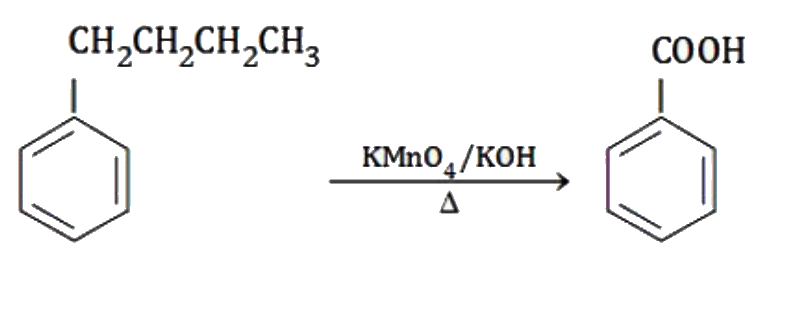
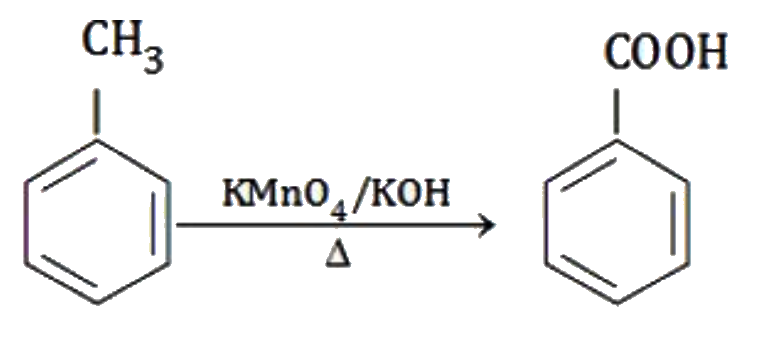
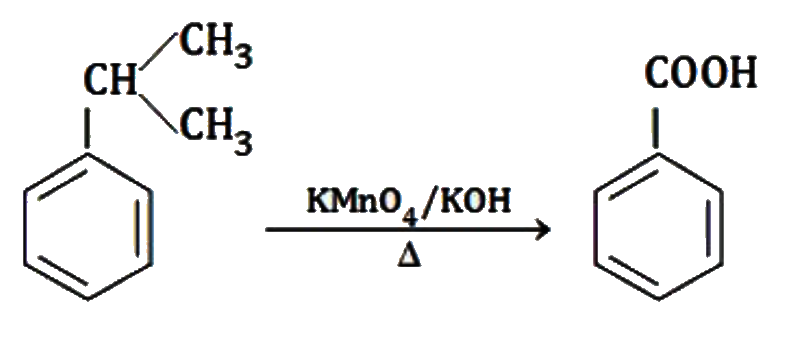
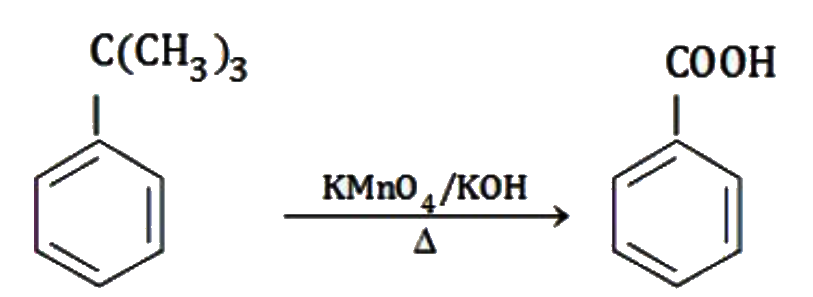
The correct Answer is:D
To determine which of the given reactions does not occur, we will analyze each option based on the behavior of KMnO4 as an oxidizing agent.
1. Understanding KMnO4 as an Oxidizing Agent:
- KMnO4 (Potassium permanganate) is known to be a strong oxidizing agent. It can oxidize various organic compounds, especially alkenes and alcohols, to form carboxylic acids or ketones.
2. Analyzing the Reactions:
- We need to look at the four reactions provided (let's denote them as A, B, C, and D) and see which one does not proceed.
3. Reaction A:
- If Reaction A involves a primary or secondary alcohol or an alkene, KMnO4 would oxidize it to a carboxylic acid or ketone. This reaction is expected to occur.
4. Reaction B:
- If Reaction B involves a secondary alcohol or an alkene, KMnO4 can oxidize it as well. This reaction is also expected to occur.
5. Reaction C:
- If Reaction C involves a primary alcohol or an alkene, KMnO4 would oxidize it to a carboxylic acid. This reaction is expected to occur too.
6. Reaction D:
- If Reaction D involves a tertiary alkane (or a tertiary alcohol), KMnO4 will not oxidize it because there are no hydrogen atoms attached to the carbon that is connected to the benzene ring. Tertiary carbons do not undergo oxidation to form carboxylic acids in this context.
7. Conclusion:
- Based on the analysis, Reaction D does not occur due to the absence of hydrogen on the tertiary carbon, which prevents oxidation. Therefore, the answer is that Reaction D is the one that does not occur.
Final Answer:
Option D does not occur.
---
- KMnO4 (Potassium permanganate) is known to be a strong oxidizing agent. It can oxidize various organic compounds, especially alkenes and alcohols, to form carboxylic acids or ketones.
- We need to look at the four reactions provided (let's denote them as A, B, C, and D) and see which one does not proceed.
- If Reaction A involves a primary or secondary alcohol or an alkene, KMnO4 would oxidize it to a carboxylic acid or ketone. This reaction is expected to occur.
- If Reaction B involves a secondary alcohol or an alkene, KMnO4 can oxidize it as well. This reaction is also expected to occur.
- If Reaction C involves a primary alcohol or an alkene, KMnO4 would oxidize it to a carboxylic acid. This reaction is expected to occur too.
- If Reaction D involves a tertiary alkane (or a tertiary alcohol), KMnO4 will not oxidize it because there are no hydrogen atoms attached to the carbon that is connected to the benzene ring. Tertiary carbons do not undergo oxidation to form carboxylic acids in this context.
- Based on the analysis, Reaction D does not occur due to the absence of hydrogen on the tertiary carbon, which prevents oxidation. Therefore, the answer is that Reaction D is the one that does not occur.
Option D does not occur.
Similar Questions
Knowledge Check
- Question 1 - Select One
Which of the following reactions does not occur ?
A B
B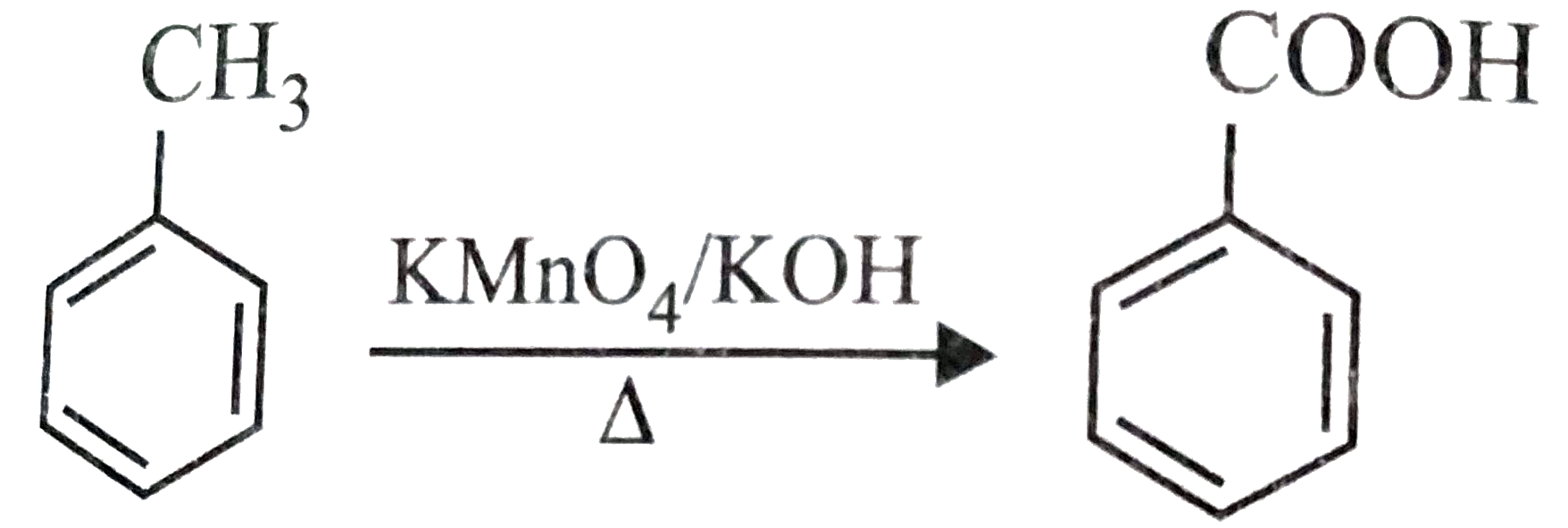 C
C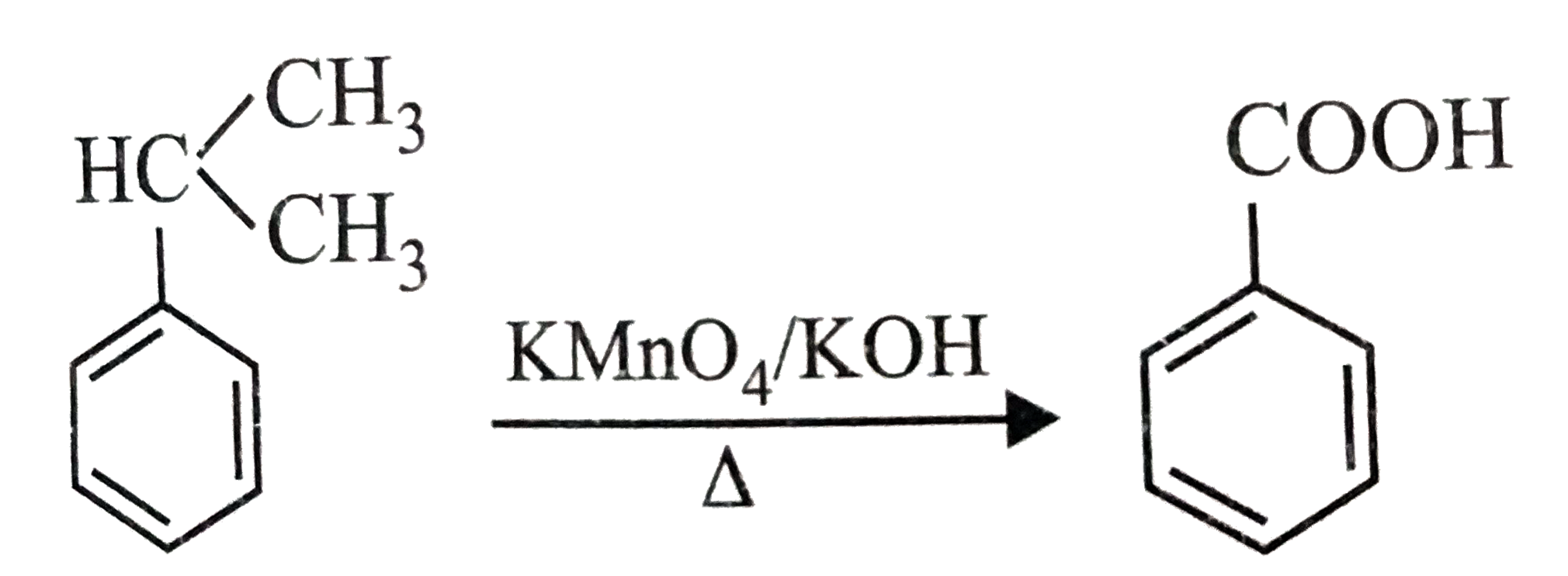 D
D
- Question 2 - Select One
Which of the following reactions does not proceed in forward direction?
APh3C−H+CH3(CH2)3Na→Ph3Cna+CH3(CH2)2CH3B CCH3−O∣∣C−CH2−O∣∣C−CH3+C2H5өON⊕a→CH3−O∣∣C−CH=өO⊕Na∣C−CH3+C2H5OHD
CCH3−O∣∣C−CH2−O∣∣C−CH3+C2H5өON⊕a→CH3−O∣∣C−CH=өO⊕Na∣C−CH3+C2H5OHD
- Question 3 - Select One
Which of the following reactions does not proceed in forward direction?
ACH3CH2SH+NaOH→CH3CH2Sna+H2OBCH3CH2OH+CH3MgBr→CH3CH2OMgBr+CH4CCH3CH2OH+NaOH→CH3CH2Ona+H2ODCH3CH2OH+NaH→CH3CH2Ona+H2
Which of the following reaction does not form an ether ?
View SolutionWhich of the following reaction does not produce ethyne ?
View SolutionWhich of the following reactions does not form salicylic acid ?
View SolutionWhich of the following reactions does not produce oxygen ?
View SolutionWhich of the following reactions will not occur ?
View Solution

